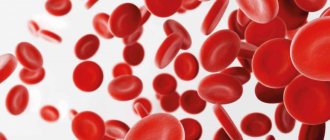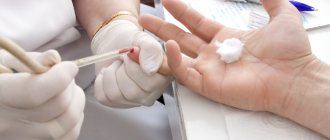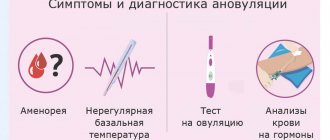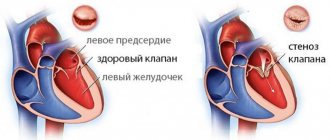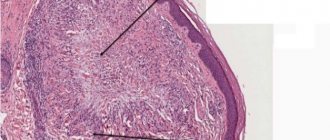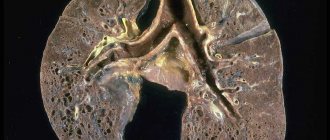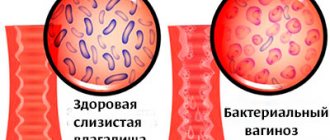Synonyms: neutrophil granulocytes, NEUT, neutrophil segmented granulocytes, polymorphonuclear neutrophils
There are six types of neutrophils depending on the stage of their maturation. Immature types include myeloblasts, promyelocytes, myelocytes, metamyelocytes and band cells. The final stage of development is segmented neutrophils (mature cells with a formed nucleus, divided into several segments).
Even at the stages of their initial development, neutrophils are able to resist infection, although mature segmented cells cope with this task much more effectively.
In blood tests of people suffering from severe infectious diseases, immature forms of neutrophils can be detected. This is explained by the fact that in the fight against pathogenic microorganisms, segmented cells die too quickly, and therefore the body is forced to use cells that are not fully mature. But in the blood of a healthy person, predominantly mature neutrophils are found, since they cope well with their task with virtually no help from their young brothers.
Figure 1. Phagocytosis. Image: mikrostoker/Depositphotos
Blood test for neutrophils
To determine the level of neutrophils, a complete blood count is used. To designate neutrophils on the analysis form, the Latin abbreviation NEUT is used, which can be expressed either in absolute (cell content per liter of blood, for example 0.04-0.3 × 109) or as a percentage. For general analysis, capillary blood is usually used. The biomaterial is collected from a finger after puncture with a scarifier. Sometimes blood is drawn from a vein - much depends on the methods the laboratory uses.
How to prevent infection
Below are some ways to prevent infection:
- Do not accept guests who have a cold or who have recently had an infection.
- Wear a mask when visiting public places, using public transport or being in crowded places. It will help protect you from a cold or respiratory infection.
- Do not treat your teeth unless absolutely necessary. Consult your healthcare provider before undergoing any procedure.
- Ask your healthcare provider when you can again: use tampons;
- use dental floss;
- use suppositories (solid soluble medications);
- give enemas;
- have sex.
to come back to the beginning
Indications for analysis
A general blood test is the most common hematological test, so the range of indications for its use is wide. Neutrophils are a type of white blood cell whose main task is to destroy pathogenic microorganisms. Therefore, the main goal of the analysis for the content of neutrophils is to identify potentially dangerous conditions accompanied by infectious and inflammatory processes. In other words, a blood test for neutrophils can be informative both for colds and for kidney or liver diseases.
Special cases of decreased neutrophils
We are talking about genetically determined neutropenia, which is quite rare, but affects the result of a blood test. This:
- benign chronic neutropenia is asymptomatic, there is no danger to life, but when interpreting the analysis, this point is always taken into account;
- cyclic neutropenia occurs in one person per million, does not affect the quality of life, manifests itself in a periodic causeless decrease and then restoration of neutrophils to normal;
- Kostmann's syndrome is a condition when neutrophils are deprived of the opportunity to mature, as a result a person is deprived of natural protection and constantly suffers from all possible infections. Today, provided that the pathology is detected in a timely manner, patients are given courses of drug correction.
Preparing for analysis
The study is carried out in the morning on an empty stomach, since food intake causes an increase in the number of neutrophils in the blood. Dinner on the eve of the test is allowed no later than eight o'clock in the evening. 2 days before the study, the patient should follow the following preparation rules:
- stop drinking alcohol;
- limit the consumption of spicy, fried and fatty foods;
- Avoid heavy physical activity and nervous stress.
The morning before the test you should not smoke. It is allowed to drink pure still water.
Figure 2. Preparation for donating blood for analysis.
Maintain good personal hygiene
With neutropenia, it is important to observe the rules of personal hygiene. Follow the recommendations in this section. For more information on hand hygiene, see Hand Hygiene and Infection Prevention
- Shower with an antiseptic 4% chlorhexidine gluconate (CHG) skin cleanser (such as Hibiclens®). Gently massage the 4% CHG solution into your body from neck to toes. Do not apply it to the face or genital area. For more information about showering with Hibiclens, check out How to Shower with Hibiclens®. If you have a central venous catheter (CVC), talk to your healthcare provider before showering. For more information about showering, check out Showering While You Have a Central Venous Catheter (CVC).
- When washing, wet your hands with warm water and scrub them with soap for at least 20 to 30 seconds. Rinse your hands thoroughly under warm running water. Dry them with a clean paper towel.
- If using an alcohol-based hand sanitizer, apply it to both hands and rub in for 20 to 30 seconds.
- ATMs;
to come back to the beginning
Normal levels of neutrophils in the blood
The number of neutrophils in the blood is approximately 40-70% of the total leukocyte mass in both men and women.
When conducting research, experts primarily pay attention to the content of neutrophils at the middle and full stages of maturation, that is, band and segmented forms. Young cells are of interest if the development of the spread of inflammatory processes is suspected. The table shows the leukocyte formula, which reflects, among other things, the number of neutrophils. Table 1. Leukocyte formula with the number of neutrophils
| Index | × 10x9/l | Share as a percentage of the number of leukocytes | |
| Neutrophils | segmented | 2.0 – 5.5 | 40 — 70 |
| stab | 0.4 – 0.3 | 1 — 5 | |
| Basophils | Within 0.062 | Within 1.0 | |
| Eosinophils | 0.02 – 0.3 | 0.5 — 5 | |
| Lymphocytes | 1.0 – 3.2 | 17 — 38 | |
| Monocytes | 0.07 – 0.5 | 3 — 12 | |
In children of the first year of life, the number of band neutrophils can reach five, then the maximum value is limited to four, as in adults. The smallest number of segmented neutrophils is observed in children 4-5 years old (35-55%). In other age groups it varies between 40-70%.
Causes of increased neutrophils in the blood
Elevated neutrophil levels can indicate a wide range of illnesses and injuries. Very often, the cause of an increase in neutrophils in the blood is infectious processes of bacterial origin, which can be either focal or generalized (spread throughout the body).
Reasons for increasing the level of neutrophils in the blood:
- upper respiratory tract infections (laryngitis, pharyngitis, sore throat);
- pneumonia;
- kidney diseases;
- diseases of the cardiovascular system;
- local purulent-inflammatory foci (abscesses, abscesses);
- viral diseases (measles, mumps, chickenpox, rubella, etc.);
- oncological diseases;
- taking hormonal medications;
- infections of bacterial origin (dysentery, tuberculosis, cholera, anthrax, etc.);
- poisoning with toxic substances;
- processes of tissue necrosis (gangrene, myocardial infarction, major burns);
- injuries of large organs;
- fractures;
- damage to the skin (cuts, abrasions, etc.);
- gout;
- sepsis (blood poisoning).
Eating canned foods can also cause an increase in neutrophils. This applies to those products in which there are no longer living bacteria left, but the toxic products of their vital activity have been preserved.
Why are neutrophils low?
The reasons for the low level may vary. Among the main ones we can list the following:
- Viral infections (rubella, influenza, measles, hepatitis, etc.).
- Protozoal infections (toxoplasmosis, malaria, leishmaniasis).
- Rickettsial (typhoid fever).
- Some bacterial infections (typhoid fever, brucellosis, paratyphoid fever).
- Consequences of taking certain medications (analgesics, cytostatics, sulfonamides).
- Anemia (aplastic, hypoplastic).
- Agranulocytosis.
- Consequences of radiation therapy.
- Radiation exposure.
- Unfavorable environmental conditions.
- Some hereditary diseases.
- Inflammatory diseases that have acquired a generalized course.
- Hypersplenism.
- Ulcer of the duodenum and stomach.
- Anaphylactic shock.
Causes of low levels of neutrophils in the blood
A decrease in the level of neutrophils in the blood is called neutropenia. The cause of this phenomenon can be diseases of various natures, as well as taking various medications.
Reasons for decreased neutrophil levels:
- infectious diseases (viral hepatitis, typhus, influenza, mononucleosis, etc.);
- autoimmune diseases (rheumatoid arthritis, systemic vasculitis, Crohn's disease, etc.);
- radiation sickness;
- blood diseases (leukemia, hemolytic and dyserythropoietic anemia).
Separate mention should be made of medications: taking them can also cause neutropenia. This is a very broad group of medications, which includes:
- NSAIDs (non-steroidal anti-inflammatory drugs: analgin, amidopyrine);
- antibacterial drugs (cephalosporins, penicillins);
- drugs to lower sugar (chlorpropamide);
- thyreostatic agents (propylthiouracil, Mercazolil);
- antimalarial drugs of synthetic origin (hydroxychloroquine);
- sulfonamides (sulfapyrazone; sulfasalazine);
- cytostatics (chlorambucil, methotrexate);
- antivirals (ganciclovir, zidovudine).
Figure 3. Blood cells in a healthy person and with neutropenia. Image: Sakurra/Depositphotos
Additional examinations
Supportive measures are prescribed only by doctors. Among the methods:
- Oral interview with the patient. It is necessary to identify all the symptoms of the pathological process.
- Study of anamnesis.
- General blood and urine analysis. Biochemical methods.
- Allergy tests. Within the framework of which immunological studies are carried out.
- Bone marrow puncture. Quite a risky technique. It is prescribed in extreme cases when there is no other option.
- Immunological tests.
- Chest X-ray.
- Smears from the throat, genitals. From suspected sources of infection.
If neutrophils are low in an adult, this indicates an obvious pathological process: inflammation, poisoning, allergies, disorders of the bone marrow, radiation sickness, or the development of side effects from taking medications.
Consequences of deviation of neutrophils from the norm
A change in the level of neutrophils in the blood is a signal from the body about the presence of inflammatory diseases, injuries or poisoning. Therefore, it is necessary to accurately determine the cause of the increase or decrease in neutrophils in order to begin treatment in time or eliminate the provoking factor. If this is not done on time, the consequences can be severe (even death). The greatest danger among possible causes is infectious diseases of a bacterial nature, as well as processes of local suppuration and necrotization (death) of tissue.
How to reduce the number of neutrophils in the blood
To reduce the number of neutrophils in the blood, it is necessary to influence the cause of this phenomenon, since there are no separate ways to eliminate it. If the increase in neutrophil levels is caused by short-term stress or increased physical activity, then no specific correction is required.
For persistent neutrophilia, depending on the disease that caused it, the following treatment methods are used:
- antimicrobial therapy - antibiotics are used for infections (amoxicillin, cefixime);
- antiplatelet therapy - in case of heart attack and a tendency to blood clots, acetylsalicylic acid and alteplase are prescribed;
- anti-inflammatory therapy - glucocorticosteroids (prednisolone) are used to reduce inflammation that provokes neutrophilia;
- chemotherapy – aimed at combating malignant tumors (cytostatics, antimetabolites).
If there is a local focus of inflammation, surgical treatment can be used. For example, it is relevant for appendicitis or abscesses. The menu should limit the amount of meat products, canned and smoked. The diet should be rich in vegetables and fruits.
To normalize the level of neutrophils in the blood, it is recommended to eat more vegetables and fruits. Photo: sommail / freepik.com
When should you contact your healthcare provider?
Contact your healthcare provider immediately if you have any of the following signs of infection:
- temperature 100.4°F (38°C) or higher;
- tremendous chills;
- persistent nausea and vomiting;
- facial redness;
- sweating;
- cough;
- lightheadedness or dizziness;
- diarrhea (loose or watery stools);
- constipation (bowel movements occur less frequently than usual);
- Mouth ulcers
- Headache
- pain in a new place;
- Irritability
- pain or burning when urinating (when you go to the toilet in small quantities);
- feeling weak, especially when combined with flu-like symptoms (such as fever, sore throat, and chills).
to come back to the beginning
How to increase the number of neutrophils in the blood
To correct neutropenia, it is necessary to identify its cause. If a decrease in neutrophil levels is caused by taking medications, you should first weigh the possible risks of a decrease in neutrophil levels with the importance of the therapeutic effect of the drugs used. In extreme cases, the drug can be replaced with an analogue that does not affect the level of neutrophils in the blood. The underlying diseases that cause neutropenia are treated with antibiotics, anti-inflammatory and antiviral drugs.
It is recommended to consume the following products:
- any meat dishes (it is important that they are all well thermally processed);
- hard boiled eggs;
- pasteurized milk;
- cheese (except for varieties with mold);
- potato;
- rice;
- pasta;
- fruits and vegetables;
- alcohol only in consultation with a doctor.
Careful heat treatment of meat and eggs is necessary in order to exclude the possibility of bacteria and microbes entering the body, which actively multiply in poorly fried or undercooked protein dishes.
